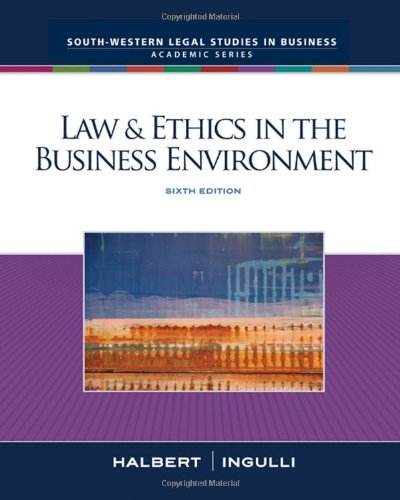On what basis did Oiler lose his case? In 1979, plaintiff, Peter Oiler, was hired by defendant,
Question:
On what basis did Oiler lose his case?
In 1979, plaintiff, Peter Oiler, was hired by defendant, Winn-Dixie, as a loader. In 1981, he was promoted to yard truck driver and he later became a road truck driver. As a road truck driver, plaintiff delivered groceries from Winn-Dixie’s grocery warehouse in Harahan, Louisiana, to grocery stores in southern and central Louisiana and Mississippi.
Plaintiff is a heterosexual man who has been married since 1977. The plaintiff is transgendered.
He is not a transsexual and he does not intend to become a woman…. He is a male crossdresser [or] transvestite.
When he is not at work, plaintiff appears in public approximately one to three times per month wearing female clothing and accessories. In order to resemble a woman, plaintiff wears wigs and makeup, including concealer, eye shadow, foundation, and lipstick …
skirts, women’s blouses, women’s flat shoes, and nail polish. He shaves his face, arms, hands, and legs. He wears women’s underwear and bras and he uses silicone prostheses to enlarge his breasts. When he is crossdressed as a woman, he adopts a female persona and he uses the name “Donna”.
… While crossdressed, he attended support group meetings, dined at a variety of restaurants in Kenner and Metairie, visited night clubs, went to shopping malls, and occasionally attended church services. He was often accompanied by his wife and other friends, some of whom were also crossdressed.
On October 29, 1999, plaintiff told Gregg Miles, a Winn-Dixie supervisor, that he was transgendered…. [W]hen plaintiff did not resign voluntarily, Winn-Dixie discharged him …
because [of concerns that] if Winn-Dixie’s customers learned of plaintiff’s lifestyle, i.e., that he regularly crossdressed and impersonated a woman in public, they would shop elsewhere and Winn-Dixie would lose business. Plaintiff did not crossdress at work and he was not terminated because he violated any Winn-Dixie on-duty dress code. He was never told … that he was being terminated for appearing or acting effeminate at work, i.e., for having effeminate mannerisms or a high voice. Nor did any Winn-Dixie manager ever tell plaintiff that he did not fit a male stereotype or assign him work that stereotypically would be performed by a female….
In Ulane v. Eastern Airlines, Inc. (7th Cir. 1984) a male airline pilot was fired when, following sex reassignment surgery, she attempted to return to work as a woman…. The Ulane court stated that:
The phrase in Title VII prohibiting discrimination based on sex, in its plain meaning, implies that it is unlawful to discriminate against women because they are women and against men because they are men. The words of Title VII do not outlaw discrimination against a person who has a sexual identity disorder, i.e., a person born with a male body who believes himself to be a female, or a person born with a female body who believes herself to be male; a prohibition against discrimination based on an individual’s sex is not synonymous with a prohibition based on an individual’s sexual identity disorder or discontent with the sex into which they were born….
In 1964, when Title VII was adopted, there was no debate on the meaning of the phrase “sex.” In the social climate of the early sixties, sexual identity and sexual orientation related issues remained shrouded in secrecy and individuals having such issues generally remained closeted. Thirty-eight years later, however, sexual identity and sexual orientation issues are no longer buried and they are discussed in the mainstream. Many individuals having such issues have opened wide the closet doors.
Despite the fact that the number of persons publicly acknowledging sexual orientation or gender or sexual identity issues has increased exponentially since the passage of Title VII, the meaning of the word “sex” in Title VII has never been clarified legislatively. From 1981 through 2001, thirty-one proposed bills have been introduced in the United States Senate and the House of Representatives which have attempted to amend Title VII and prohibit employment discrimination on the basis of affectional or sexual orientation. None have passed….
Step by Step Answer:

Law And Ethics In The Business Environment
ISBN: 9780324657326
6th Edition
Authors: Terry Halbert , Elaine Ingulli





